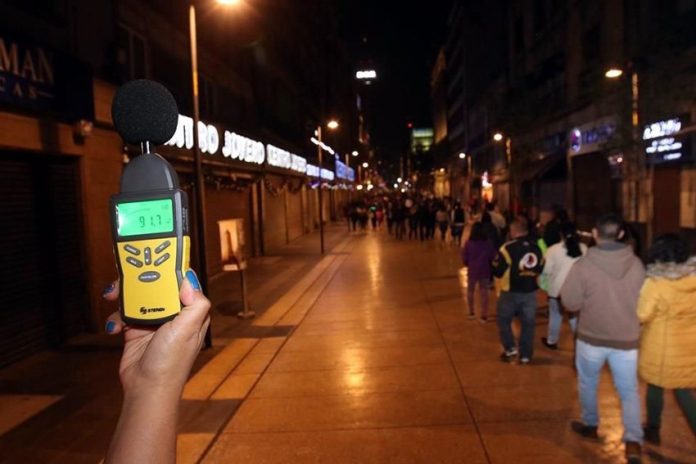Sanctions imposed on businesses and individuals violating noise regulations in Mexico City should be strengthened, according to an academic who argues that people have a “right to silence.”
Jimena de Gortari, professor of architecture and urbanism at the Iberoamericana University, also called on the newly-installed Mexico City government to be stricter in the enforcement of the regulations.
Fines for exceeding noise regulations range from 806 to 3,224 pesos (US $41 to $164) but less than 2% of noise complaints result in sanctions being imposed.
De Gortari argued that city authorities should carry out more frequent inspections to ensure compliance with existing regulations and impose fines without exception where breaches are detected.
“The right to silence and the right to rest have to be incorporated [in the city’s constitution] as legitimate rights of any human being . . .” she said.
Miguel Ángel Cancino, Mexico City’s environmental prosecutor, said that authorities have failed to combat the city’s noise problems, explaining that offending businesses such as nightclubs are often only given warnings of which they take no notice.
One area of the city where noise frequently exceeds permitted levels is Madero street, a pedestrian thoroughfare in the historic center.
By using a sound level meter, the newspaper Reforma found that bars and nightclubs located on the busy street were exceeding the permitted decibel levels by as much as 61%.
Between 8:00pm and 6:00am, noise regulations allow for music to be played at a maximum of 62 decibels.
Noise generated by public works, aircraft, traffic and street vendors are also frequently complained about by residents of Mexico City.
De Gortari said that Mexico’s capital is the eighth noisiest city in the world and called on the government to develop a mobile app that residents can use to report violations of noise regulations.
Noise in Mexico is a hot-button issue that often provokes vigorous debate among both Mexicans and foreign residents.
Amid a long-running dispute over noise levels in the historic center of Mérida, Yucatán, last year, a local musician and union boss suggested that expatriate residents, some of whom complained about late-night noise emanating from cantinas and nightclubs, should go home if they are not happy with the situation.
Source: Reforma (sp)
